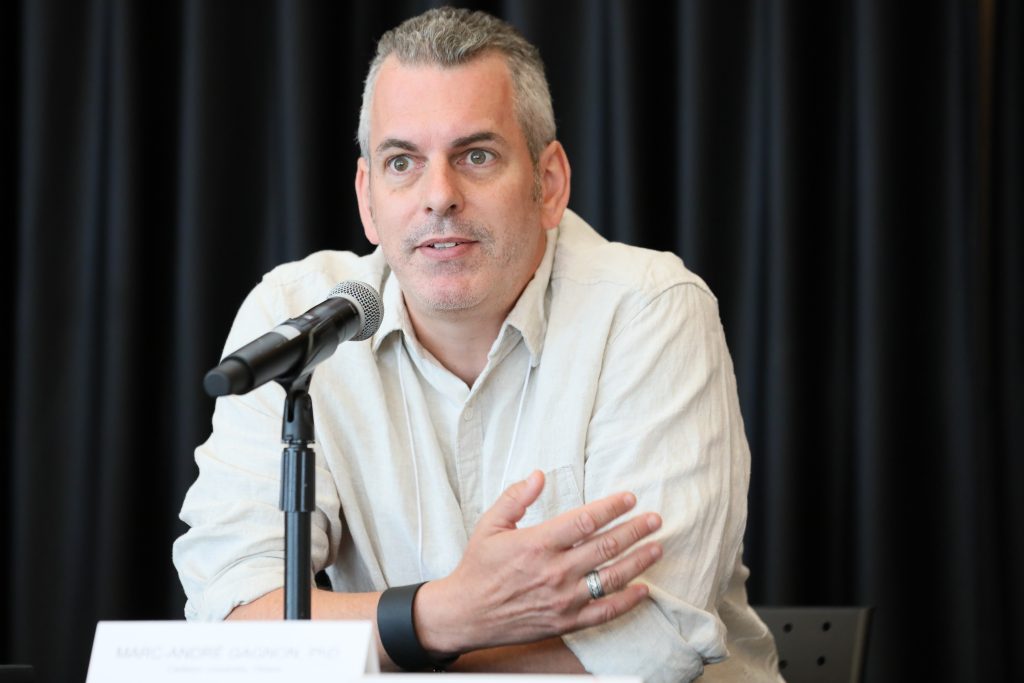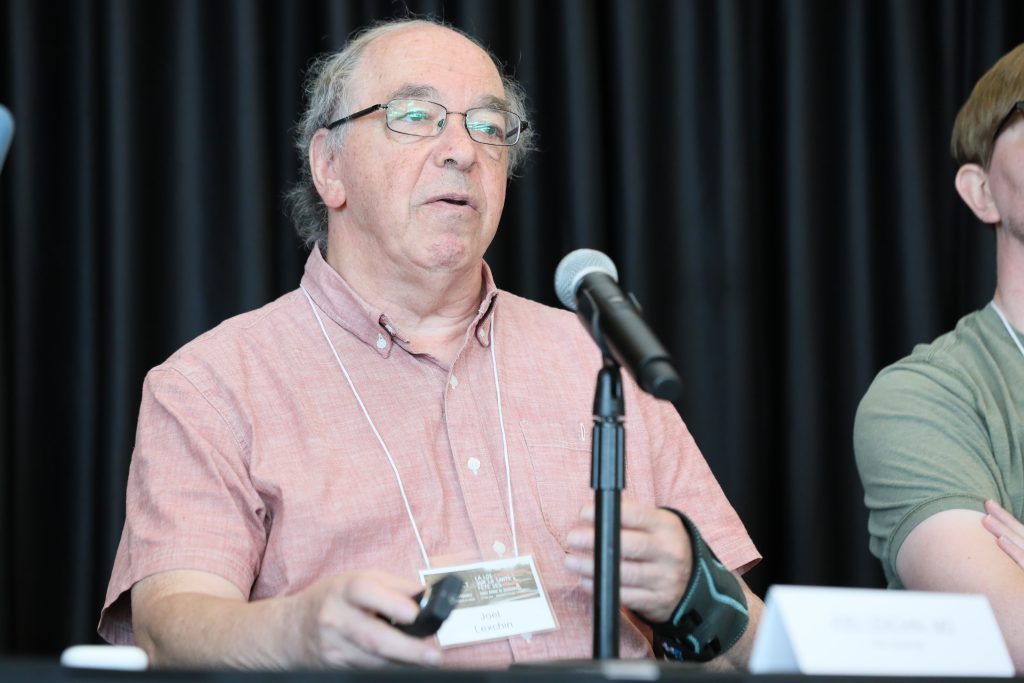Be wary of the profiteers trying to stop pharmacare, say researchers
Millions across Canada are counting on the Senate to swiftly pass Bill C-64, An Act respecting pharmacare, so they can finally access free birth control and diabetes medication.
Researchers on the “Winning Pharmacare” panel at the Canada Health Act at 40 Research Roundtable on June 20 at the University of Ottawa described the powerful interests trying to stop universal pharmacare from becoming a reality. The panel featured the country’s foremost researchers and advocates for universal pharmacare. The panel is now available for viewing here –
Marc-André Gagnon with Carleton University’s School of Public Policy and Administration specializes in political economy of the pharmaceutical sector. He noted Québec and Canada’s spending on pharmaceuticals is one of the highest of the OECD nations, just behind the United States and Germany.
Gagnon also noted that nine per cent of Canadians refrained from filling a prescribed medication or intentionally missed doses of their medication due to financial constraints in the year prior to a 2020 survey published by the Commonwealth Fund.

According to Gagnon, the private insurance industry is promoting other solutions to drug coverage including extending the Québec model by making private insurance compulsory. He argued that would increase costs by $5 billion. He also noted that extending the discounts obtained by public plans to private plans is on the table as well as offering public coverage for catastrophic drugs.
Gagnon said such models are mostly costly and inefficient. Furthermore, he says that such private models would undermine Canada’s ability to negotiate lower prices, while requiring public funds to pay to cover the risks of private plans.
Council of Canadians’ privatization and trade campaigner Nikolas Barry-Shaw discussed how pharmaceutical and insurance companies use think tanks, institutions and academics to promote their for-profit agenda. The Council of Canadians recently released a report, A Prescription for Profit, on big pharma’s misinformation on pharmacare.
“The aim is to create echo chambers in the media and in the halls of power that resonate with industry-approved talking points, delivered by seemingly independent voices,” said Barry-Shaw who named the think tanks like the Fraser Institute as well as other influential bodies like the Conference Board of Canada and their role in opposing universal, single-payer pharmacare.

According to Barry-Shaw, these bodies championing private interests often say most Canadians have drug coverage and so universal pharmacare is not needed, but that it is misleading because while many Canadians have some drug coverage, many cannot actually afford to pay for the medicine they need.
Dr. Joel Lexchin, considered a legend in emergency medicine and a Canadian Health Coalition board member, wanted the audience to think about the quality of the drugs that are going to be funded by public pharmacare.
Using data from Health Canada and the World Health Organization, Lexchin noted we are seeing an increase in the number of cancer drugs and orphan drugs for rare diseases being approved by Health Canada. He noted orphan drugs are expensive and make up about five per cent of prescriptions, but they take up about 30 per cent of spending on prescription drugs.

“We allow companies to charge a lot more for orphan drugs and we are approving more and more of these drugs and they’re more likely to be approved under a notice of compliance with conditions, which means that they’re more expensive and we know less about how well they work when they come on the market,” said Lexchin who noted that drug companies are applying pressure on Health Canada to approve drugs and that “most of the drugs that come onto the market have no additional therapeutic value compared to what’s already present.”
“One in ten to one in seven new drugs that come on the market actually make a major difference to people’s lives,” said Lexchin whose research in this area can be read in Frontiers in Medicine.
All three panelists want a single-payer universal pharmacare program and their work is exposing the for-profit interests at play trying to oppose pharmacare.
The research roundtable was organized by the Canadian Health Coalition and the University of Ottawa’s Centre for Health Law, Policy and Ethics with support from St. Thomas University.

This is the third of a series of eight weekly blogs summarizing what was heard at the Canada Health Act at 40 Research Roundtable at the University of Ottawa on June 20, 2024. Next week’s blog will discuss ten unhelpful myths about the Canada Health Act as presented by Greg Marchildon and Bill Tholl. Previous webinars can be watched on the Canadian Health Coalition’s Youtube channel.



